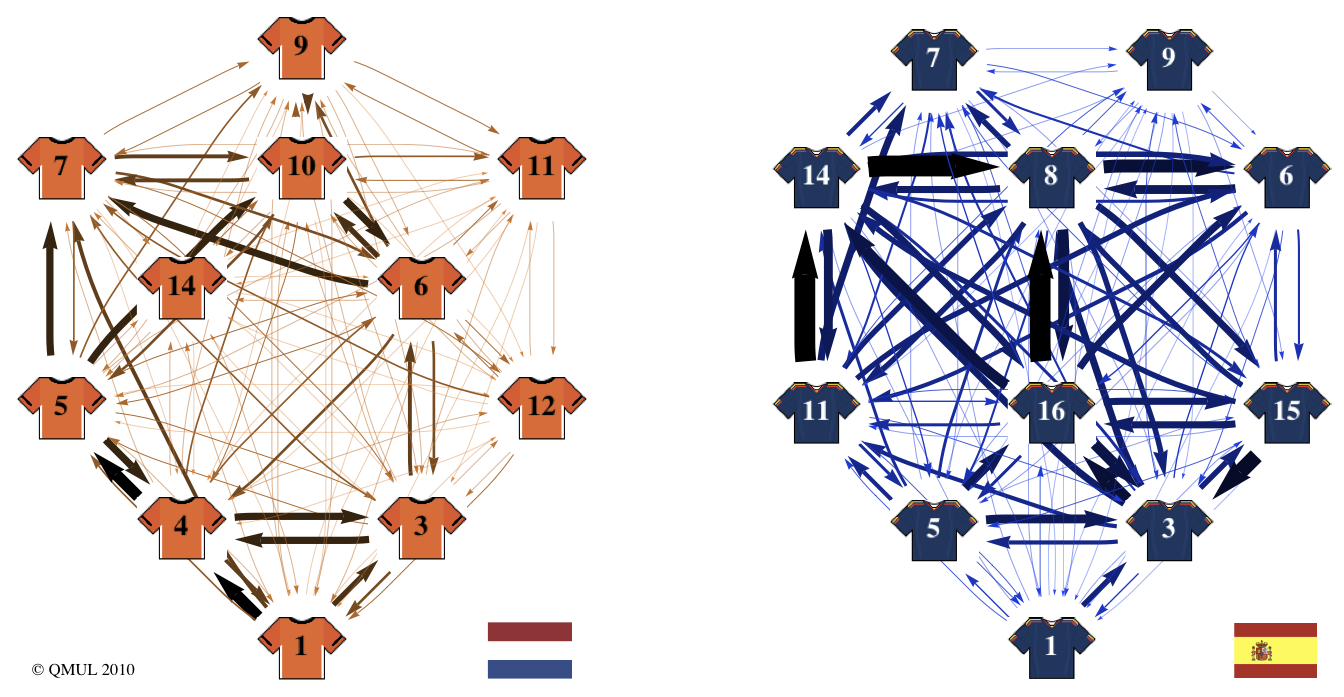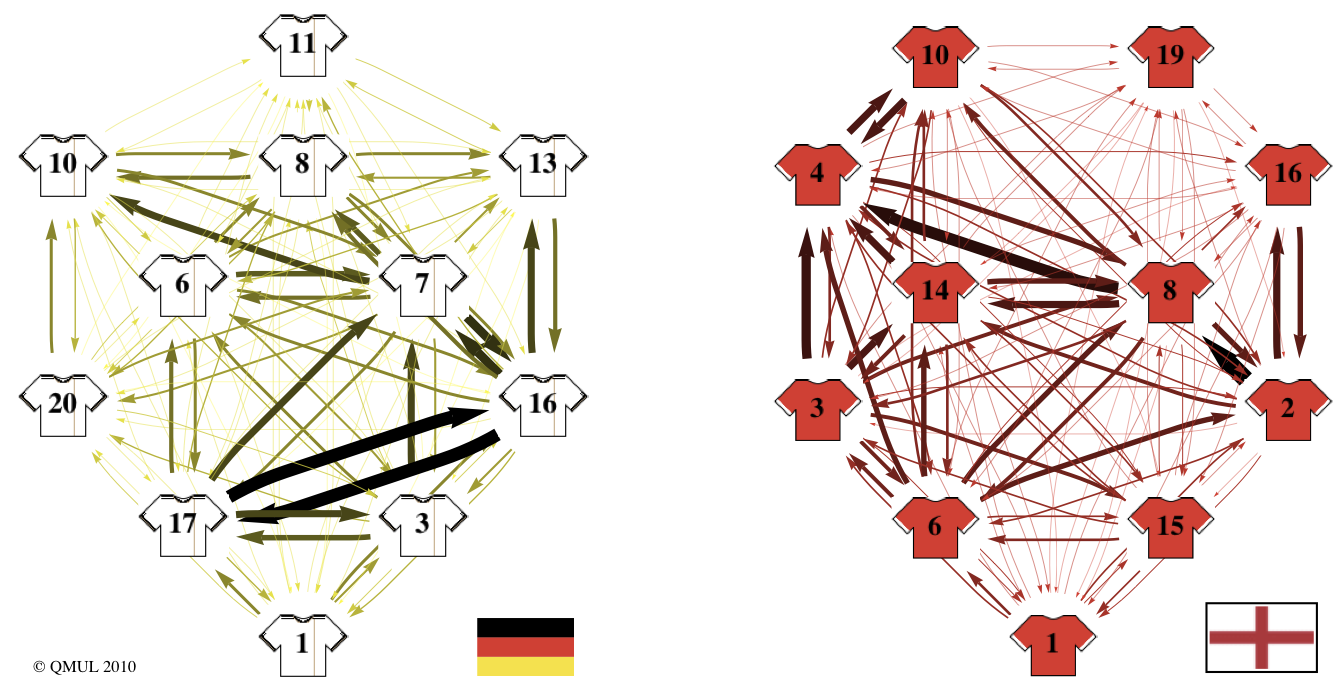Forecasting World Cup Results
Recently ended the World Cup, in which the Spanish team won. The most famous “predictor” of the mundial was the octopus Paul, who accurately predicted eight results of football matches in a row (including the outcome of the final).
But, as it turned out, the English scientists also decided to keep up with the octopus and developed a model that made it possible to predict the victory of Spain in the final and explain the defeat of England against Germany.
Mathematicians and football fans at the same time - Dr. Javier López Peña and Dr. Hugo Touchette from the University of London collected information about the passes of all the World Cup games and analyzed how they are related to the peculiarities of the national styles of the game.
Using graph theory, they found problems in the tactics of the game against the German national team and suggested that the Netherlands and Spain would play in the final.
For each team, mathematicians built a network of passes and analyzed how these networks correlate (intersect) with each other. Each player was assigned a rating (centrality), which showed how specific a player is important for the network as a whole. This method can be used to plan a football strategy.
Graph theory is used to analyze various types of networks, most often computer networks. With its help, situations are simulated for cases where, for example, some parts of the network suddenly disappear. Such research can help build more reliable and resilient networks.

Built networks showed that Spanish players made 40% more passes than Germany and twice as many as Denmark. David Villa received an average of 37% of passes per game - more than anyone in this championship (Torres scored only 13%). (But as we already know, Villa did not differ much in the final match and was replaced by Torres.)
Based on these data, it was predicted that Spain would win (which happened at the end of extra time).

A good midfielder play by Frank Lampard, Steven Gerrard and Gareth Barry did not result in a good forward game when Wayne Rooney received three times as many passes as Jermain Defoe in the average. This made the attacks of England very predictable and Rooney was easy to stop, because he usually gave a back pass to Gerard.
The German network turned out to be more balanced in comparison with the English, with a large number of passes, which implies more movement of the ball across the field. “Important passes were the passes between Philip Lam and Bastian Schweinsteiger, and most of the attacks were aggravated by the defenders. Mezut Ozil did a lot of work to connect the two attack flanks, which made the German game more interesting, diverse and less predictable. The key player was Schweinsteiger, who was successfully blocked in the semifinals, which is why Germany lost this match, ”says Dr. Lopez Peña.
More details can be read on the link .
But, as it turned out, the English scientists also decided to keep up with the octopus and developed a model that made it possible to predict the victory of Spain in the final and explain the defeat of England against Germany.
Mathematicians and football fans at the same time - Dr. Javier López Peña and Dr. Hugo Touchette from the University of London collected information about the passes of all the World Cup games and analyzed how they are related to the peculiarities of the national styles of the game.
Using graph theory, they found problems in the tactics of the game against the German national team and suggested that the Netherlands and Spain would play in the final.
For each team, mathematicians built a network of passes and analyzed how these networks correlate (intersect) with each other. Each player was assigned a rating (centrality), which showed how specific a player is important for the network as a whole. This method can be used to plan a football strategy.
Graph theory is used to analyze various types of networks, most often computer networks. With its help, situations are simulated for cases where, for example, some parts of the network suddenly disappear. Such research can help build more reliable and resilient networks.
Holland - Spain

Built networks showed that Spanish players made 40% more passes than Germany and twice as many as Denmark. David Villa received an average of 37% of passes per game - more than anyone in this championship (Torres scored only 13%). (But as we already know, Villa did not differ much in the final match and was replaced by Torres.)
Based on these data, it was predicted that Spain would win (which happened at the end of extra time).
England - Germany

A good midfielder play by Frank Lampard, Steven Gerrard and Gareth Barry did not result in a good forward game when Wayne Rooney received three times as many passes as Jermain Defoe in the average. This made the attacks of England very predictable and Rooney was easy to stop, because he usually gave a back pass to Gerard.
The German network turned out to be more balanced in comparison with the English, with a large number of passes, which implies more movement of the ball across the field. “Important passes were the passes between Philip Lam and Bastian Schweinsteiger, and most of the attacks were aggravated by the defenders. Mezut Ozil did a lot of work to connect the two attack flanks, which made the German game more interesting, diverse and less predictable. The key player was Schweinsteiger, who was successfully blocked in the semifinals, which is why Germany lost this match, ”says Dr. Lopez Peña.
More details can be read on the link .
